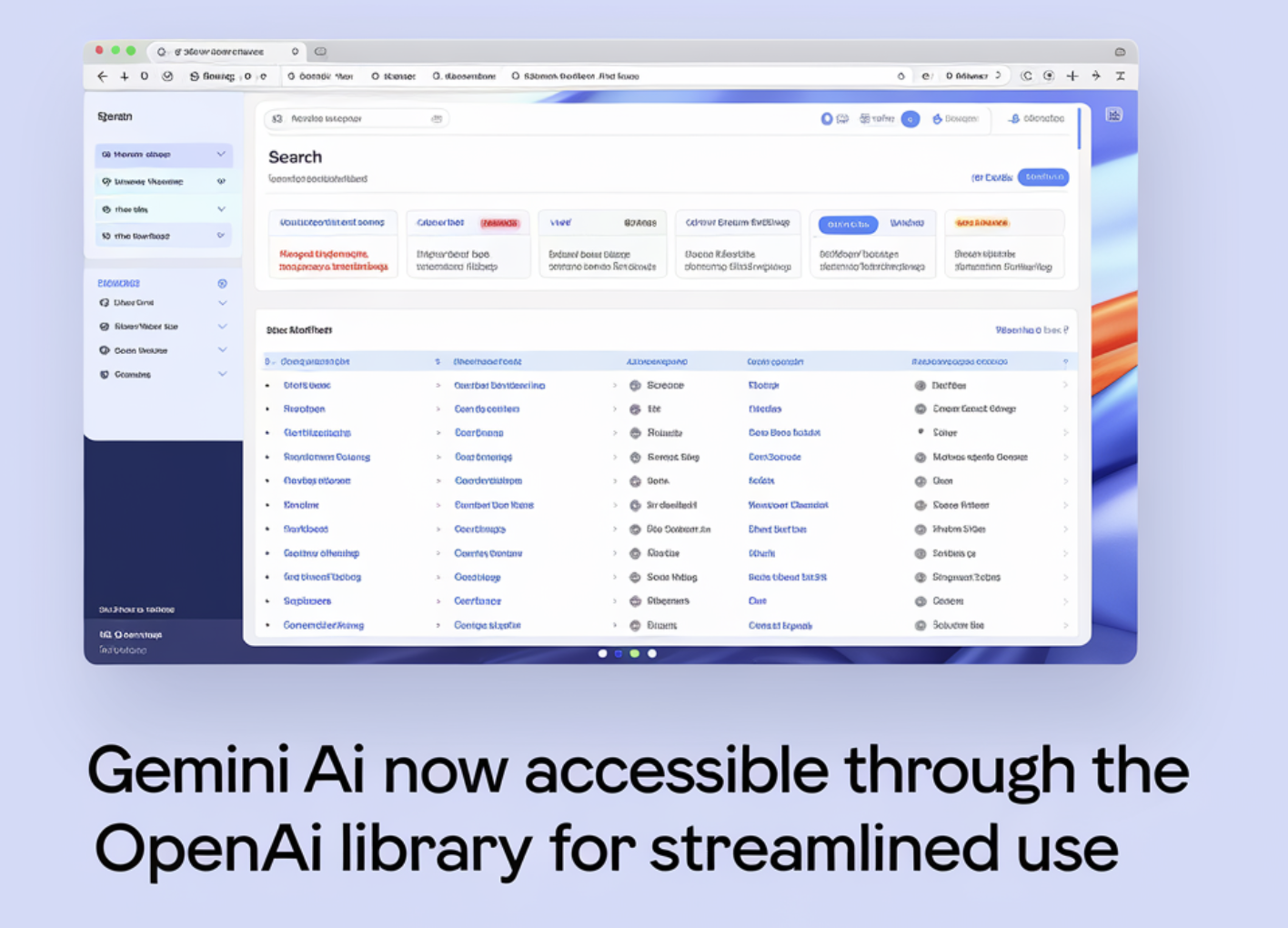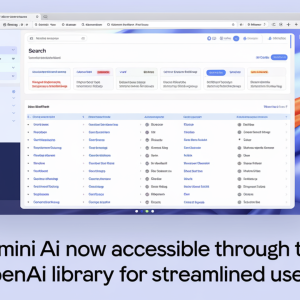

In an exciting update for developers, Google has launched Gemini, a new AI model that promises to be more accessible and developer-friendly. Gemini, designed to rival models like OpenAI’s GPT-4, has been made easier to access and integrate into various applications, thanks to Google’s recent initiatives. If you’re a developer exploring powerful alternatives or complementary tools to OpenAI, here’s why Gemini might be the right fit.
Gemini Joins OpenAI Library: Streamlining Access
Google’s Gemini is now accessible through the OpenAI library, providing a seamless experience for developers already familiar with OpenAI’s tools. This integration enables developers to leverage Gemini directly alongside other AI models in their existing workflows. Google’s step towards integrating Gemini into popular ecosystems reduces the friction that often accompanies adopting new AI technologies.
The inclusion of Gemini in the OpenAI library means developers won’t need to overhaul their existing code or pipelines. Instead, they can experiment with Gemini’s capabilities within the tools they already use, providing a straightforward path to enhancing or complementing their AI-driven applications. This flexibility is particularly attractive to developers seeking to optimize or expand their software’s capabilities with minimal disruption.
A Simplified Migration Path for Developers
Migrating to a new AI platform can be daunting, particularly when developers have invested significant time in integrating existing models. Google recognizes this challenge and has provided comprehensive support for those looking to transition to Gemini. The recently introduced migration tools and detailed documentation are geared towards making this switch as painless as possible. Developers familiar with OpenAI’s API can easily transition their code, thanks to syntactic similarities and sample guides.
Python Code Example:
python
from openai import OpenAI
client = OpenAI(
api_key="gemini_api_key",
base_url="https://generativelanguage.googleapis.com/v1beta/"
)
response = client.chat.completions.create(
model="gemini-1.5-flash",
n=1,
messages=[
{"role": "system", "content": "You are a helpful assistant."},
{
"role": "user",
"content": "Explain to me how AI works"
}
]
)
print(response.choices[0].message)Gemini’s compatibility with existing OpenAI model interfaces is a key highlight. Google has also focused on offering performance that matches or exceeds the reliability and speed of competitive models, making it a suitable replacement or addition for developers concerned about scaling their AI capabilities. The migration aids include examples that help adapt prompts, tweak fine-tuning processes, and adjust implementation details—all meant to foster a smooth experience.
One of Gemini’s standout features is its focus on improved contextual understanding, which is designed to support more nuanced and complex tasks. Google aims to address some of the current limitations observed in traditional AI models, such as maintaining coherence over extended interactions or understanding domain-specific terminology. Gemini’s training has benefited from Google’s extensive data resources, ensuring robust performance across a wide variety of use cases.
Check out the Source here. All credit for this research goes to the researchers of this project. Also, don’t forget to follow us on Twitter and join our Telegram Channel and LinkedIn Group. If you like our work, you will love our newsletter.. Don’t Forget to join our 55k+ ML SubReddit.
[AI Magazine/Report] Read Our Latest Report on ‘SMALL LANGUAGE MODELS‘
The post Gemini AI Now Accessible Through the OpenAI Library for Streamlined Use appeared first on MarkTechPost.